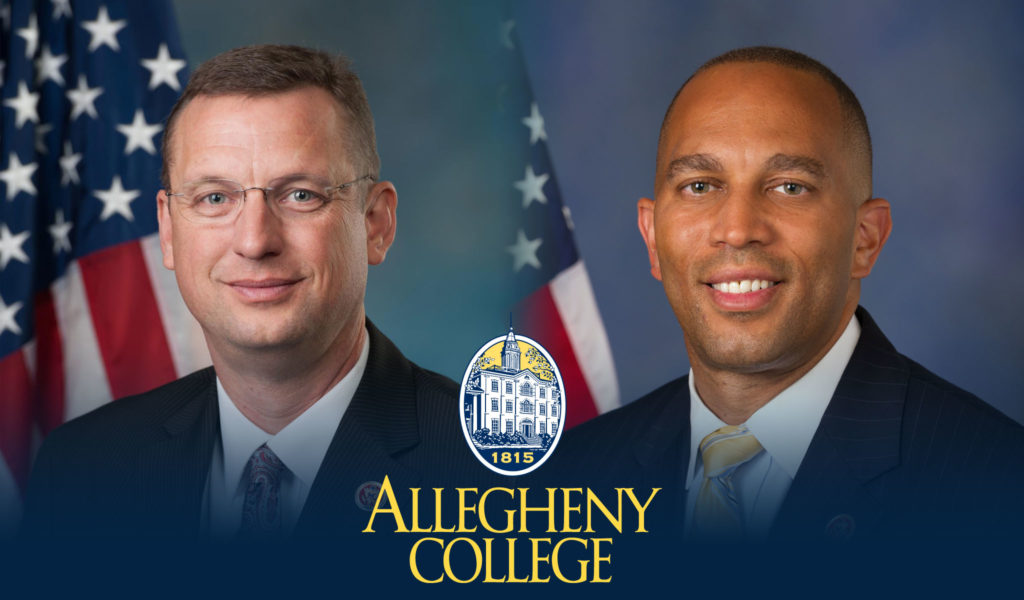Allegheny College Prize for Civility in Public Life

Awarded September 27, 2019 in Washington, D.C.
The eighth annual Allegheny College Prize for Civility in Public Life was awarded to Congressmen Doug Collins (R-Ga.) and Hakeem Jeffries (D-N.Y.) for their collaborative work toward criminal justice reform, which resulted in passage of the bipartisan First Step Act.
Allegheny College Prize for Civility in Public Life in Pennsylvania
Awarded September 23, 2019 in Hershey, PA
Allegheny College President Hilary L. Link presented the third annual Prize for Civility in Public Life in Pennsylvania to the four chairs of the Pennsylvania Criminal Justice Reform Caucus — Senators Art Haywood and Camera Bartolotta, and Representatives Sheryl Delozier and Jordan Harris.
Dr. James H. Mullen, Jr. Student Prize for Civility in Public Life
Awarded May 2022
The Dr. James H. Mullen, Jr. Student Prize for Civility in Public Life is awarded annually to exemplary student leaders who have demonstrated a strong passion for, and deep understanding of, civility on the Allegheny College campus and in community work.

